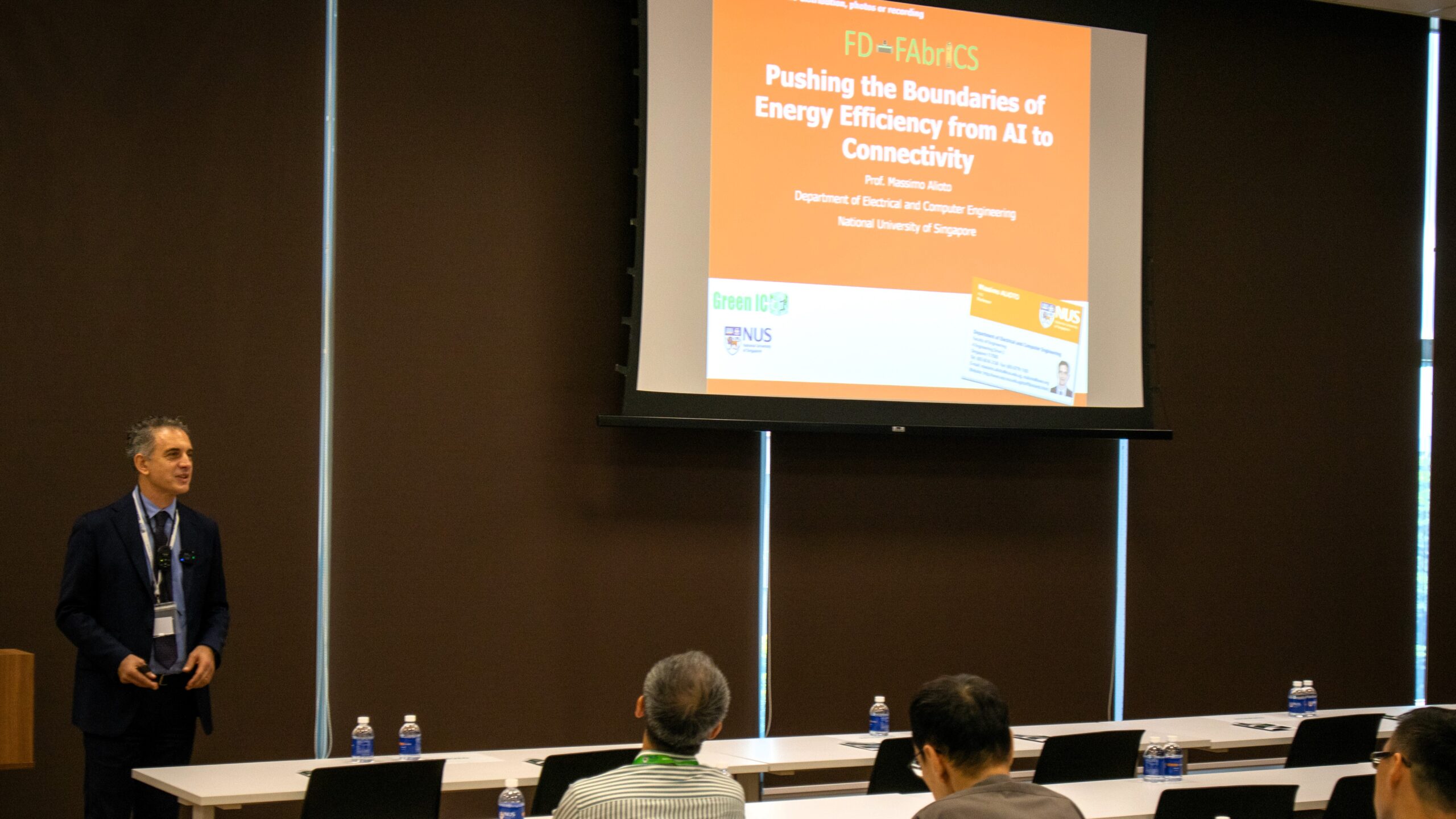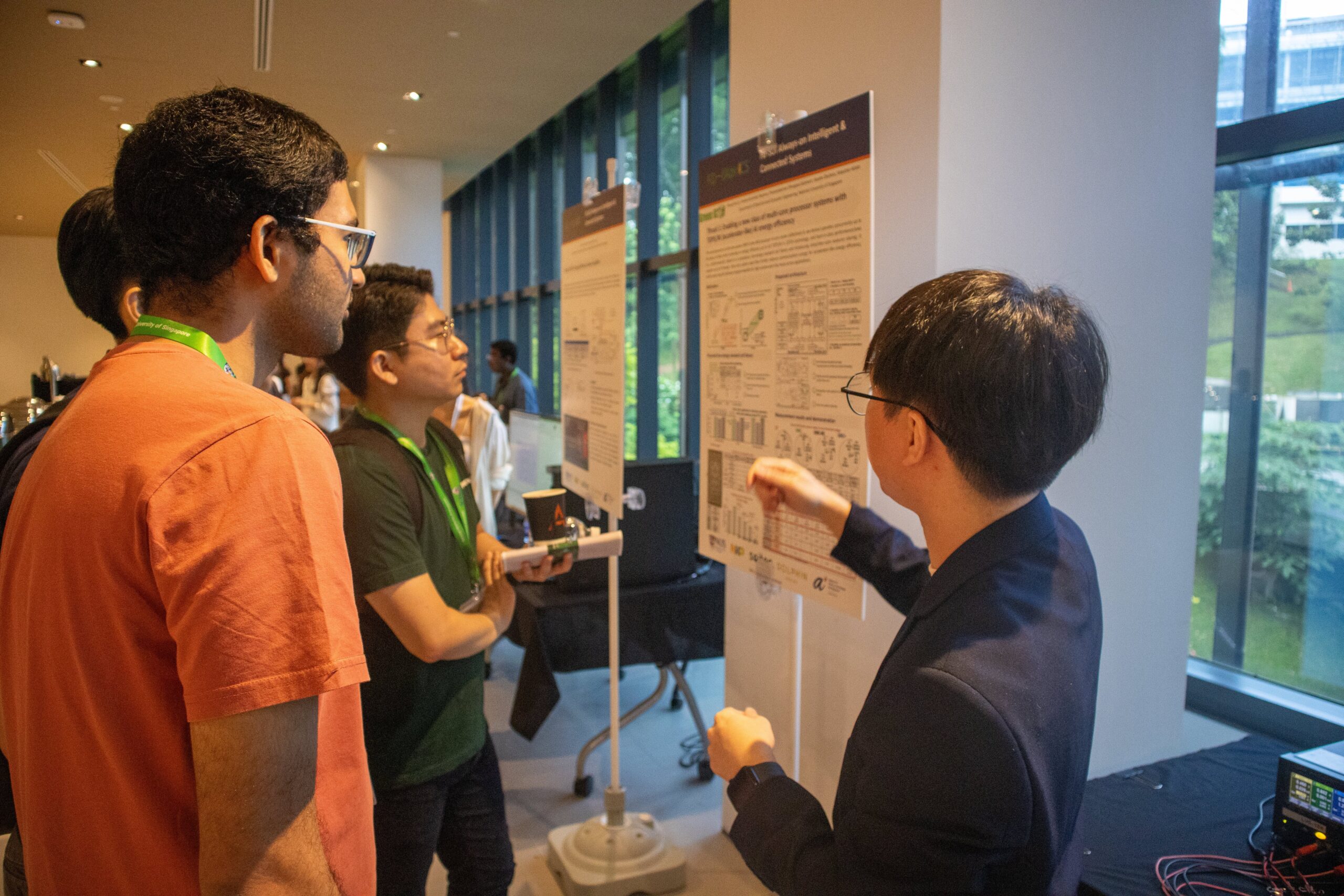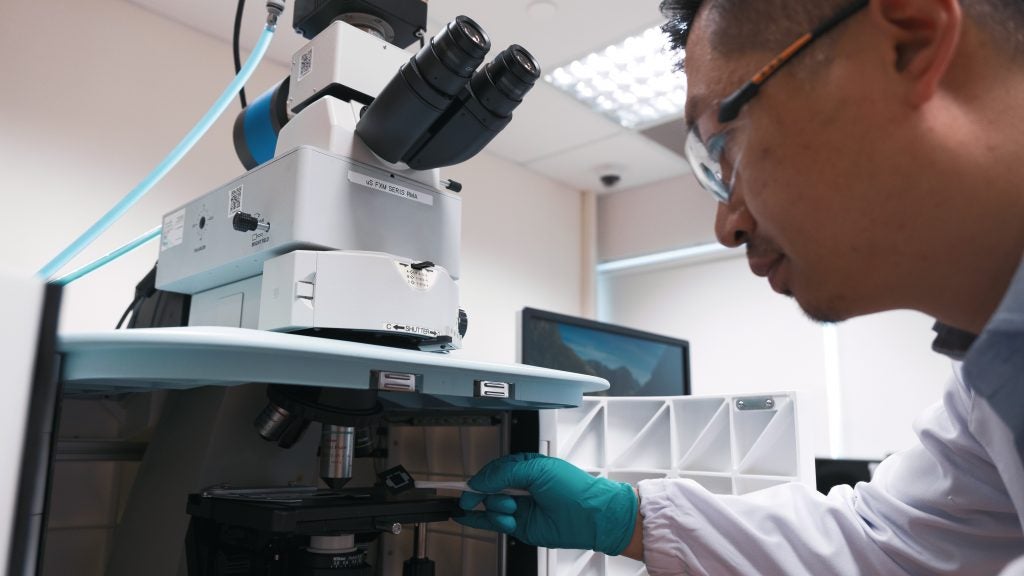
Faculty from CDE, together with industry partners Soitec and NXP Semiconductors, have showcased a new class of silicon systems technology that aims to turbocharge the energy efficiency for AI-connected devices.
Leading this charge is Professor Massimo Alioto (Electrical and Computer Engineering), Director at the FD-SOI Always-on Intelligent & Connected Systems (FD-fAbrICS) joint lab, where the new suite of technologies was developed. This new technology, a form of fully depleted silicon-on-insulator (FD-SOI) technology, can be applied to the design and fabrication of advanced semiconductor components. Some of the improvements in this new technology include the ability to support intense computational workloads for use in Industry 4.0 applications, extending the battery life of wearables and smart objects by a factor of 10 as well as cutting the power consumption of Internet-of-Things (IoT) devices by half.
Prof Alioto added, “IoT devices often operate on a limited power budget. FD-SOI’s high energy-efficiency allows it to be used in these always-on sensing systems but with low standby power consumption, such as in the common case of signal monitoring.” In an effort to encourage the industry’s adoption of the new suite of chip technologies, the FD-SOI & IoT Consortium was established in 2023 to promote the new technology along with industry partners Soitec and NXP.
An industry workshop on 3 May 2024 was organised by Prof Alioto in tandem with the FD-SOI & IoT consortium. Those from the FD-SOI research community and semiconductor industry were invited to discuss topics pertaining to new developments of FD-SOI technology. The workshop also served as an opportunity to initiate new collaborations within, and between, the two groups.

Another objective Prof Alioto hoped to achieve with the workshop was to advance the adoption of FD-SOI systems and technologies by lowering the design barriers to entry. Speakers from Soitec, GlobalFoundries, NXP and the NUS FD-fAbrICS team shared their research outcomes. The NUS team is comprised of faculty from the Department of Electrical and Computer Engineering, which includes Adjunct Professor Li Haizhou, Associate Professor Heng Chun Huat, Professor Alioto and Assistant Professor Trevor E. Carlson from the Department of Computer Science at the NUS School of Computing. The team touched on FD-SOI and their related technologies in different domains like AI models, wireless communications, digital circuits and system architectures.
The team is now looking to expand their research to develop new classes of connected silicon systems that could potentially support larger AI model sizes for AI applications.





